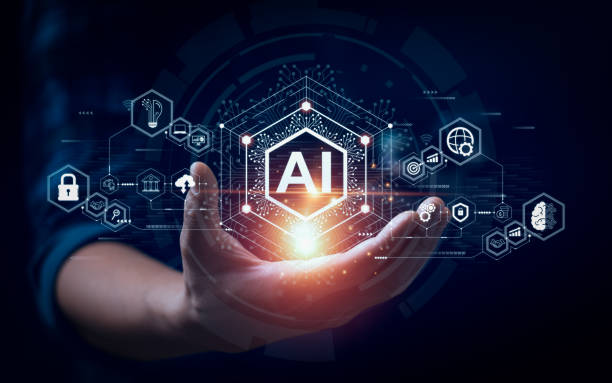AI Agent Development vs Traditional Automation: Key Differences Explained
 Michael Johnson
Michael JohnsonAs digital transformation reshapes the way businesses operate, automation has become a central pillar of efficiency. From manufacturing lines to customer service chatbots, automation is helping organizations streamline operations, reduce costs, and increase productivity. However, there’s a growing shift from static, rule-based systems toward intelligent, adaptable technologies powered by artificial intelligence. This transition has given rise to AI Agent Development, a game-changing approach that represents the next evolution of automation.
While traditional automation focuses on repetitive task execution with predefined rules, AI agent development goes several steps further. AI agents are autonomous software entities capable of learning, reasoning, making decisions, and adapting to dynamic environments. As companies embrace smarter solutions, it’s vital to understand how AI Agent Development differs from conventional automation, and what advantages it brings in the context of modern app development, web development, and custom software development.
This article explores the critical distinctions between AI agents and traditional automation systems and why investing in AI Agent Development could be the key to future-proofing your business.

Understanding Traditional Automation
Traditional automation has been around for decades, particularly in manufacturing and enterprise workflows. These systems are based on fixed logic, defined by a set of instructions that dictate how a task should be performed. Once programmed, these automations can execute tasks reliably without deviation, assuming the input conditions remain consistent.
In custom software development, traditional automation might include simple macros, rule-based data processing, or customer support chatbots that follow a fixed script. While efficient, these systems lack the ability to adapt or handle tasks beyond their programmed scope. If conditions change or unexpected variables are introduced, traditional automation often fails or requires human intervention.
Traditional automation is deterministic. It relies heavily on human-defined logic, and its intelligence is limited to what developers explicitly build into the system. This rigidity makes it less effective in complex, data-rich environments where variables are constantly changing, such as dynamic customer interactions, real-time decision-making, or multi-agent systems.
The Emergence of AI Agent Development
AI Agent Development introduces a radical departure from fixed automation rules by enabling autonomous decision-making. AI agents are intelligent software programs capable of perceiving their environment, learning from data, making decisions based on objectives, and taking actions to achieve defined goals. Unlike traditional systems, these agents are dynamic, context-aware, and capable of operating in uncertain conditions.
For example, an AI agent in a retail app development environment can not only respond to customer inquiries but also anticipate user behavior, suggest products based on browsing history, and adjust recommendations in real time based on evolving preferences. The same principle applies to logistics, finance, and healthcare, where AI agents can optimize routes, detect fraud, or assist with diagnoses—far beyond the capabilities of traditional automation.
Developed through AI development practices that combine machine learning, natural language processing, computer vision, and reinforcement learning, these agents continue to improve over time. They are designed to learn from every interaction and update their decision models accordingly, making them more accurate and efficient as they operate.
Core Differences Between AI Agent Development and Traditional Automation
While both automation models aim to enhance operational efficiency, they differ in scope, intelligence, flexibility, and learning capability. In AI Agent Development, systems are built to interpret unstructured data, respond to dynamic inputs, and take actions that align with higher-level goals.
Traditional automation cannot learn or adjust beyond its initial programming. If a customer’s inquiry doesn’t match predefined keywords or a production condition changes slightly, a traditional system may either malfunction or route the task back to a human operator. In contrast, an AI agent would adapt by analyzing patterns, drawing conclusions from past scenarios, and resolving the task autonomously.
Another key difference lies in communication and collaboration. AI agents can operate within a network of agents, sharing knowledge and coordinating actions—much like a team of digital employees. This multi-agent system architecture is especially useful in industries like supply chain, finance, and telecommunications, where decisions need to be distributed yet synchronized.
Real-World Applications: Where Each Model Excels
In web development or enterprise software systems, traditional automation still plays a critical role in high-volume, predictable tasks such as data entry, invoice generation, and report distribution. These tasks are ideal for traditional bots due to their repetitive nature and stable environment.
However, as soon as variability and real-time decision-making enter the equation, AI Agent Development becomes essential. In AI chatbot development, for example, simple bots can respond to FAQs, but they struggle with context retention, sentiment detection, or complex query resolution. AI-powered agents can carry forward context from previous conversations, adjust their tone based on user sentiment, and escalate issues only when necessary.
Similarly, in logistics, traditional automation might help schedule deliveries based on static routes. An AI agent, on the other hand, can adjust those routes in real-time based on traffic, weather, and delivery constraints, ensuring higher accuracy and reduced delays.
The Role of AI Agent Development in Modern Software Infrastructure
In modern custom software development, AI agents are being embedded into the very architecture of digital systems. These agents aren’t just tools; they’re becoming part of the decision-making layer, operating alongside human teams to execute complex workflows.
For instance, in an intelligent CRM platform, AI agents can evaluate customer intent, score leads, recommend sales strategies, and even schedule follow-ups autonomously. In healthcare applications, AI agents assist doctors by analyzing patient history, suggesting treatment plans, and flagging anomalies—all while learning from global medical data repositories.
The integration of AI Agent Development with AI chatbot development, AI development, and app development is enabling software platforms to become self-improving and contextually aware. Instead of building monolithic software that needs regular human tuning, developers are now creating environments where agents evolve with data, improving usability and operational efficiency continuously.
Challenges and Considerations
While AI Agent Development offers numerous advantages, it also comes with challenges that businesses must address. One key issue is data privacy and security. AI agents require large amounts of data to function effectively, which raises concerns about compliance with regulations like GDPR and HIPAA. Ensuring transparency in how agents make decisions is also critical, especially in regulated industries.
Another consideration is the computational cost. AI agents require more processing power and infrastructure compared to traditional automation tools. However, advancements in cloud computing, edge AI, and decentralized learning are mitigating these concerns, making agent-based models increasingly accessible.
Partnering with an experienced AI Agent Development company can help navigate these challenges by providing frameworks, best practices, and compliance-ready solutions tailored to specific industries.
Why AI Agent Development Is the Future
As businesses face increasing complexity in customer expectations, market dynamics, and operational logistics, the limitations of traditional automation become more apparent. Static bots cannot evolve, reason, or navigate ambiguity. In contrast, AI Agent Development introduces systems that can think, learn, and act intelligently—mirroring human cognition and extending operational capabilities far beyond simple scripts.
The rise of intelligent agents also supports the broader trend of hyper-personalization and real-time responsiveness. Consumers expect tailored experiences, proactive service, and seamless interactions across platforms. Only AI agents, built through sophisticated AI development pipelines, can meet these expectations at scale.
Furthermore, organizations that invest early in AI Agent Development gain a strategic edge by embedding intelligence into their core operations. This not only reduces manual effort but also enables faster innovation cycles, better resource allocation, and stronger customer relationships.
Partnering with the Right AI Agent Development Company
To fully harness the power of AI agents, businesses must collaborate with the right AI Agent Development company. Such companies bring the necessary expertise in AI development, app development, web development, and custom software development to create agents that align with business goals and integrate seamlessly with existing infrastructure.
These partners can guide businesses through data collection, model training, agent deployment, and lifecycle management. They also ensure that your AI systems are explainable, compliant, and continuously optimized, setting the foundation for long-term success.
Whether you're enhancing your digital product with AI chatbot development or deploying autonomous agents in complex enterprise systems, a specialized development company can accelerate your journey, minimize risks, and deliver robust, scalable solutions.
Conclusion
The automation landscape is evolving rapidly. While traditional automation remains valuable for certain tasks, its limitations become evident in dynamic, data-intensive environments. AI Agent Development stands out as the future of intelligent automation, offering adaptive, goal-driven, and context-aware systems that go far beyond rule-based logic.
By understanding the core differences between traditional automation and AI Agent Development, businesses can make informed choices about where and how to invest in the future of their operations. From enhancing user experience to optimizing backend processes and scaling new markets, AI agents are unlocking unprecedented opportunities across industries.
Choosing the right AI Agent Development company ensures that your investments are strategically aligned with cutting-edge technology, enabling your business to lead in innovation and operational excellence. The future belongs to intelligent, self-improving systems—and it starts with building smarter agents today.
Subscribe to my newsletter
Read articles from Michael Johnson directly inside your inbox. Subscribe to the newsletter, and don't miss out.
Written by
